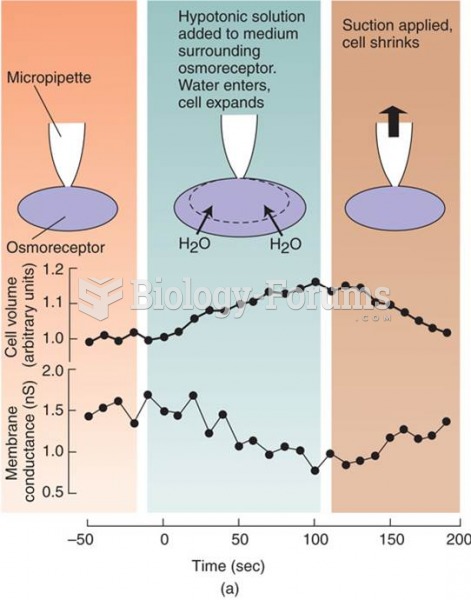This topic contains a solution. Click here to go to the answer
|
|
|
Did you know?
It is difficult to obtain enough calcium without consuming milk or other dairy foods.
Did you know?
Each year in the United States, there are approximately six million pregnancies. This means that at any one time, about 4% of women in the United States are pregnant.
Did you know?
More than 34,000 trademarked medication names and more than 10,000 generic medication names are in use in the United States.
Did you know?
Between 1999 and 2012, American adults with high total cholesterol decreased from 18.3% to 12.9%
Did you know?
Every 10 seconds, a person in the United States goes to the emergency room complaining of head pain. About 1.2 million visits are for acute migraine attacks.
 The S-curve in the human vertebral column--a result of the evolution of bipedality--makes humans hig
The S-curve in the human vertebral column--a result of the evolution of bipedality--makes humans hig
 Mechanisms of action of adrenergic agonists: (1) stimulation of the release of NE; (2) increased ...
Mechanisms of action of adrenergic agonists: (1) stimulation of the release of NE; (2) increased ...





